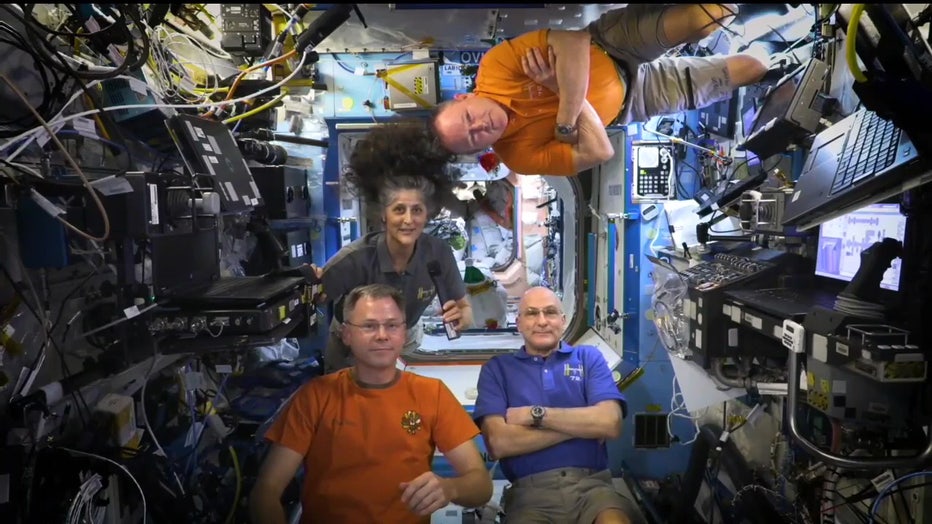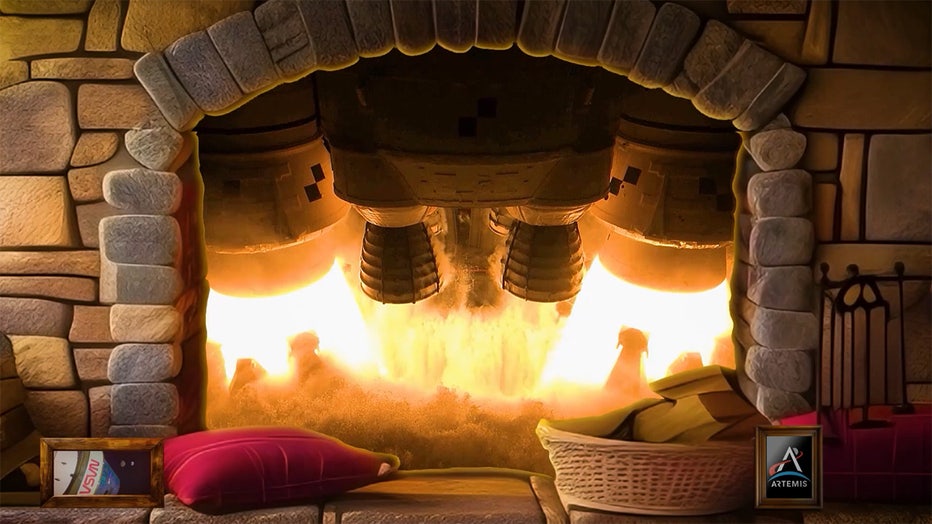Astronauts’ Thanksgiving message: "We’re grateful for our nation"

Astronauts' Thanksgiving 2024 meal & message
Packets of Brussels sprouts, butternut squash, apples and spice, and smoked turkey go tumbling through the space station as the astronauts show off their feast.
CAPE CANAVERAL, Fla. - The astronauts aboard the International Space Station showed off their out-of-this-world Thanksgiving feast recently, but they also had a very down-to-earth message of thanks on this holiday.
"Our meal may look a little bit different," Nick Hague offered in a NASA video as he and Don Pettit unpacked Brussels sprouts, butternut squash, apples and spice, and, of course, smoked turkey. "It’s gonna be delicious."
"There’s not many places you can be that you can actually lay on the ceiling, and this is one of them," a noticeably sideways Butch Wilmore chimed in. "We’re thankful for zero gravity. It’s fantastic."

Clockwise from bottom left: Nick Hague, Suni Williams, Butch Wilmore, and Don Petit. (NASA)
Wilmore and Sunita Williams have been in space since riding Boeing’s now-departed Starliner capsule to the station. They are due to go home early next year aboard a SpaceX Dragon capsule.
Wilmore took the opportunity to share a more serious message about what life as an American means to him.
"We’re grateful for a nation that is a spacefaring nation, lets us live free, say what we think is important to say, and so many other things," he said.
The four, along with the three cosmonauts aboard the orbital outpost, are taking Thanksgiving off to enjoy their meal, talk to family members on the ground, and relax aboard the station.
NASA’s ‘flame trench’ yule log

NASA is offering a two-hour loop of this Artemis-themed yule log. (NASA)
It’s a question that no one asked, but the rocket scientists at NASA decided to answer anyway: How do we take the traditional yule log into the space age?
Their answer is still a cracking, cozy fireplace – but one that’s seemingly filled with the blazing exhaust of four RS-25 rocket engines and two roaring solid rocket boosters like the ones that powered the space shuttle and Artemis I.
"Just enough to get you to the moon," NASA noted, "and get through the holidays with your in-laws."
You can watch the two-hour loop in its high-def glory on NASA’s website and streaming on NASA+.

